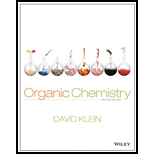
(a)
Interpretation:
The different alkene, alkane products formed for each given substrates when treated with a different reducing reagents are needed to be find out.
Concept Introduction:
Hydrogenation reaction: The hydrogenation is a reduction reaction which results in an addition of hydrogen. Several organic compounds is hydrogenated, it becomes more saturated.
Metal reduction reaction: The
Linder’s catalyst: The
Metal and ammonia reaction: The alkyne involves sodium
(b)
Interpretation:
The different alkene, alkane products formed for each given substrates when treated with a different reducing reagents are needed to be find out.
Concept Introduction:
Hydrogenation reaction: The hydrogenation is a reduction reaction which results in an addition of hydrogen. Several organic compounds is hydrogenated, it becomes more saturated.
Metal reduction reaction: The alkenes can be reduced to alkanes with H2 in the presence of metal catalyst (Pt). The two new C-H σ bonds are formed simultaneously from H atoms absorbed into the metal surface. This type of reaction stereospecific giving only the cis (syn) addition product.
Linder’s catalyst: The alkyne reduced to alkenes to give the cis (Z) alkene.
Metal and ammonia reaction: The alkyne involves sodium
(c)
Interpretation:
The different alkene, alkane products formed for each given substrates when treated with a different reducing reagents are needed to be find out.
Concept Introduction:
Hydrogenation reaction: The hydrogenation is a reduction reaction which results in an addition of hydrogen. Several organic compounds is hydrogenated, it becomes more saturated.
Metal reduction reaction: The alkenes can be reduced to alkanes with H2 in the presence of metal catalyst (Pt). The two new C-H σ bonds are formed simultaneously from H atoms absorbed into the metal surface. This type of reaction stereospecific giving only the cis (syn) addition product.
Linder’s catalyst: The alkyne reduced to alkenes to give the cis (Z) alkene.
Metal and ammonia reaction: The alkyne involves sodium
Want to see the full answer?
Check out a sample textbook solution
Chapter 10 Solutions
Organic Chemistry
 ChemistryChemistryISBN:9781305957404Author:Steven S. Zumdahl, Susan A. Zumdahl, Donald J. DeCostePublisher:Cengage Learning
ChemistryChemistryISBN:9781305957404Author:Steven S. Zumdahl, Susan A. Zumdahl, Donald J. DeCostePublisher:Cengage Learning ChemistryChemistryISBN:9781259911156Author:Raymond Chang Dr., Jason Overby ProfessorPublisher:McGraw-Hill Education
ChemistryChemistryISBN:9781259911156Author:Raymond Chang Dr., Jason Overby ProfessorPublisher:McGraw-Hill Education Principles of Instrumental AnalysisChemistryISBN:9781305577213Author:Douglas A. Skoog, F. James Holler, Stanley R. CrouchPublisher:Cengage Learning
Principles of Instrumental AnalysisChemistryISBN:9781305577213Author:Douglas A. Skoog, F. James Holler, Stanley R. CrouchPublisher:Cengage Learning Organic ChemistryChemistryISBN:9780078021558Author:Janice Gorzynski Smith Dr.Publisher:McGraw-Hill Education
Organic ChemistryChemistryISBN:9780078021558Author:Janice Gorzynski Smith Dr.Publisher:McGraw-Hill Education Chemistry: Principles and ReactionsChemistryISBN:9781305079373Author:William L. Masterton, Cecile N. HurleyPublisher:Cengage Learning
Chemistry: Principles and ReactionsChemistryISBN:9781305079373Author:William L. Masterton, Cecile N. HurleyPublisher:Cengage Learning Elementary Principles of Chemical Processes, Bind...ChemistryISBN:9781118431221Author:Richard M. Felder, Ronald W. Rousseau, Lisa G. BullardPublisher:WILEY
Elementary Principles of Chemical Processes, Bind...ChemistryISBN:9781118431221Author:Richard M. Felder, Ronald W. Rousseau, Lisa G. BullardPublisher:WILEY





